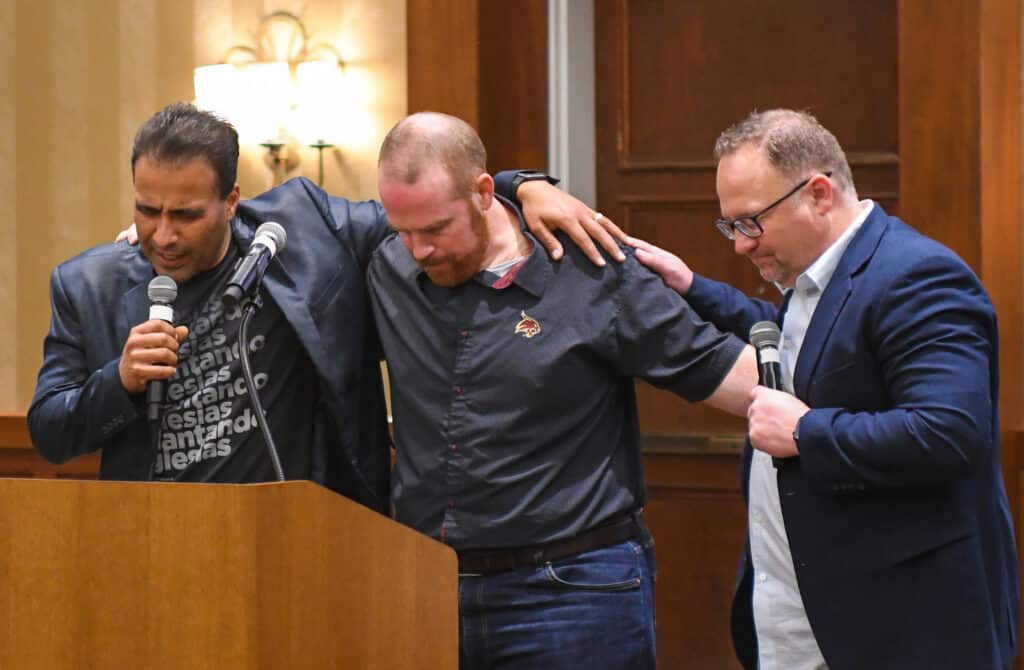AUSTIN—Pro-life bills died in the 85th Texas Legislature before they saw the light of a full debate. Only through procedural wrangling did some of the measures pass as amendments, and even those victories did not come with the aid of many pro-life legislators, critics said. However, a special session called by Gov. Greg Abbott could breathe new life into those bills.
None of the pro-life bills backed by the Southern Baptists of Texas Convention, Texas Right to Life, and conservative legislators passed as stand-alone bills. Pro-life advocates entered the bi-annual legislative session on the heels of the U.S. Supreme Court’s reversal of Texas’s 2013 abortion-regulating House Bill 2. Frustrated by procedural maneuvering by House leadership that kept bills from getting a hearing, pro-life advocates used similar tactics to regain some regulatory ground.
“We wrangled some successes out of this session despite the leadership, despite efforts to sabotage pro-life wins,” Emily Horne, Texas Right to Life senior legislative associate, told the TEXAN.
The legislation that finally received Gov. Greg Abbott’s signature increases funding for abortion alternative services, bans dismemberment abortions, enhances abortionist reporting requirements, restricts the handling of post-abortive fetal remains, and bans partial-birth abortion. The latter is already federal law.
Texas Right to Life priority legislation included the dismemberment ban, Senate Bill 415, authored by Sen. Charles Perry, R-Lubbock. The bill called for the end of the abortion practice that requires an unborn baby’s body be torn apart before being extracted from the uterus.
SB 415 never received a hearing in the House Committee on State Affairs chaired by Rep. Byron Cook, R-Corsicana. Horne said all pro-life legislation died in Cook’s committee.
Conservative legislators have criticized House leadership and their control over the fate of legislation (See Legislative Wrap up for details). The House Committee on State Affairs, nicknamed the “committee where bills go to die,” received the pro-life legislation. But Cook refused to allow hearings or a vote on the bills, which prohibited their advancement to the full chamber for debate, Horne said.
So pro-life legislators circumvented committee procedures and resurrected their bills in the form of amendments. Horne said pro-life legislators, especially the 12-member Texas Freedom Caucus, played a key role in the victories. Senate Bill 8, which prohibits partial birth abortions and regulates the disposal of fetal remains, served as the host for some of the pro-life amendments, including the dismemberment ban.
Cook voted for the dismemberment ban amendment despite his failure to give the measure a hearing in his committee.
A bill requiring physicians to obtain patient or surrogate consent before giving a “Do Not Resuscitate” order failed as did a measure that would have stripped abortion coverage from some insurance policies paid for, in part, with taxpayer funds.
But legislators took advantage of the reauthorization of the Texas State Board of Pharmacy to insert protective language for pharmacists who refuse to dispense abortifacients. Last year the U.S. Supreme Court refused to hear the case of a family owned pharmacy in Washington whose owners did not want to dispense abortion-inducing medications. Despite the fact that 30 pharmacies within a 5-mile radius sold the drug, the high court upheld the state’s demand that all pharmacists carry the drug regardless of conscience objections.
Horne said pro-life legislation that failed to get a hearing during the regular session could get new life in the special session. Pro-life items Abbott wants addressed include insurance reform, prohibitions on taxpayer-funded abortions, abortion reporting requirements, and strengthened “do not resuscitate” orders.
Legislators failed to reauthorize the Texas Medical Board, which they are required to do every 10-12 years. During the last reauthorization process, Horne said, legislators amended the bill to include a ban on third trimester abortions and the requirement that minors receive parental consent before obtaining an abortion.














